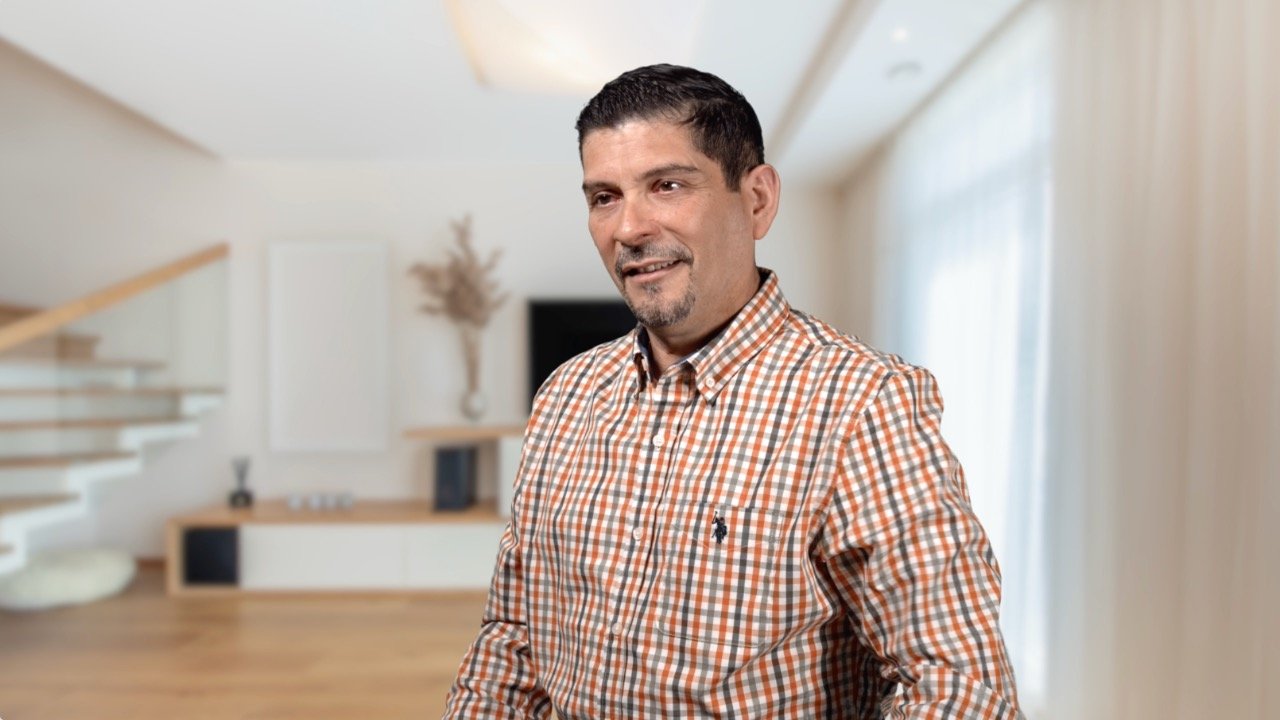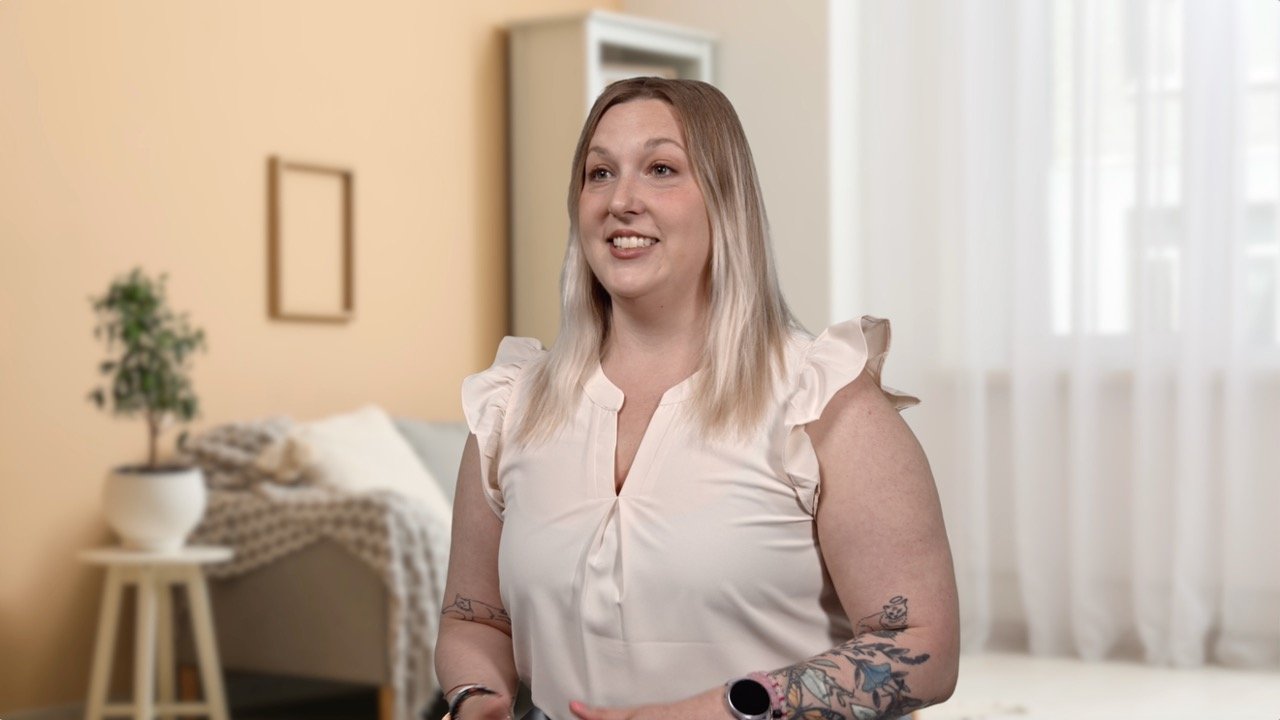
Dr. Kendra Winter Rewrites the Story for Breast Cancer Patients
It’s not every day that you can meet a surgeon who gives out her personal cell phone number.
For Dr. Kendra Winter, a breast surgical oncologist at the McGlinn Cancer Institute at Reading Hospital, part of Tower Health, her work is about more than surgery. It’s about helping patients reclaim something cancer tried to take.
And she’s not shy about what she wants, writing in her letter to cancer: Dear Cancer: You have taken too much from the beautiful people in this community. It’s now your turn to give back.
Firm. Admonishing. Unapologetically hopeful.
Kendra wants cancer to give back the birthdays that were missed during chemo. The confidence that ebbed after treatment and surgery. The peace that was stolen in the middle of the night by the thought, What if it comes back?
She wants people’s ability to live their lives back. Their livelihoods. Their families. Their mental well-being. And every day, with her patients by her side and a team around her, she fights to make that happen.
A Place She’s Meant to Be
Kendra, 35, didn’t always know breast cancer surgery would be her calling. But when she finally met her first official patient as a specialist, it clicked.
“This is what all my hard work was for,” she thought. “This is where I belong.”
She brought with her more than clinical expertise. She brought compassion, a drive for collaboration, and a commitment to giving individuals facing breast cancer not just the best oncological outcome but the best cosmetic one, too.
“Breast cancer care isn’t one-size-fits-all,” she said. “That’s why we work as a team — oncologists, radiologists, pathologists, nurse navigators, dietitians, geneticists. We come together and talk about each patient. One room. One plan. One place to come for care.”
It’s that all-in-one approach that drew her to McGlinn.
“You don’t have to live in Philadelphia to get big-city treatment,” she said. “We’re trained the same, and we’re just as good. Patients here shouldn’t have to commute for outstanding care. There’s nowhere else I’d rather be.”
She lives in nearby Sinking Spring with her husband, their dog, and a small flock of chickens on their mini homestead. It’s a life rooted in simplicity — a counterbalance to the complexity of cancer care.
Fighting Fear with Hope
Breast cancer is often described as a journey. But Kendra knows the hardest part isn’t always the diagnosis or the treatment. It’s what comes afterward.
“It’s after treatment, when you’re left with the worry, the ‘what ifs,’” she said. “That’s when patients need just as much support.”
At McGlinn, that support includes the Image Recovery Center, where patients receive care that helps them restore — or rediscover — their self-image. It’s more than physical healing. It’s emotional repair.
“It’s truly about how you see yourself,” she said. “Sometimes the little things help us become an even stronger version of who we were.”
She’s seen those transformations firsthand. A woman in her 80s, healthy, active, and shocked by her diagnosis, once asked Kendra what she’d done wrong. Kendra reminded her: You did nothing wrong. This is your journey.
The woman still texts Kendra updates and sends photos. She’s thriving. Her other doctors compliment the surgical outcome. And she feels proud of how she looks and how far she’s come.
Another patient, a young woman estranged from her mother, discovered they shared a genetic link to breast cancer. The diagnosis became a bridge. Now, her mother accompanies her to every appointment.
“It’s a lot of these little wins along the way,” Kendra said. “Sometimes people are better off than when we first met them.”
Redefining Success
For Kendra, success isn’t measured in tests or scans, although those matter. It’s in moments.
“When a patient smiles when they see me, that’s success,” she said. “They’re not afraid anymore. They feel like they can live again.”
She believes in honesty. In meeting patients where they are. And in letting them know, from the beginning: You’re not alone.
That’s why she gives them her personal number. She’s there on weekends. She listens when they cry. She celebrates with them when they ring the bell.
And she finds hope in their strength.
“This job has taught me that people really are unbreakable,” she said. “Just when life has handed them everything it can, they still show up. They fight. They laugh. They reconnect with family. And they find joy again.”
As for cancer?
It doesn’t get the last word.
Kendra’s message is clear.
It’s time for cancer to give back what it has taken.
More "Dear Cancer" Stories

“Dear Cancer: I Turned Pain into Purpose.”
After months of hiding his symptoms, followed by a life-threatening scare, Amauris “Manny” Abreu was diagnosed with Stage 4 prostate cancer at Reading Hospital’s McGlinn Cancer Institute.

“Dear Cancer: You Can’t Break Me.”
At just 34, Ramah was diagnosed with triple-negative breast cancer, the same aggressive type her mother battled years earlier.

“Dear Cancer: We’re onto You, and Your Days are Numbered.”
When Bryan Boyer woke up from what he thought would be a routine colonoscopy, he was ready to joke with the medical care team, not to be told he had Stage 2 colon cancer.
Make an Appointment
Cancer may change lives, but it doesn’t have to define them.
